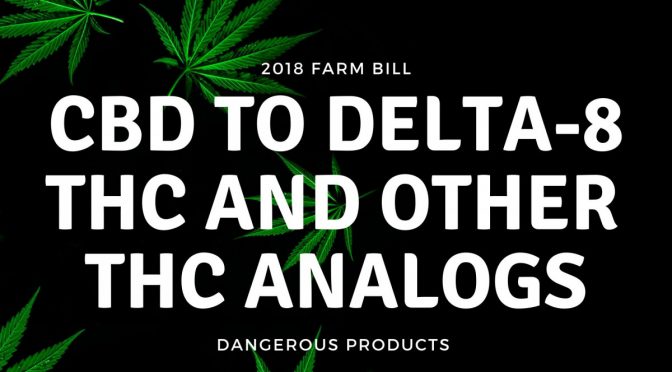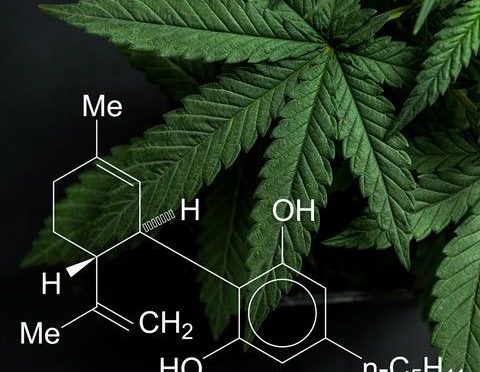The FDA is working to answer questions about the science, safety, and quality of products containing cannabis and cannabis-derived compounds, particularly CBD.
The FDA issued this statement on 11/25/19
- The FDA has
approved only one CBD product, a prescription drug product to treat two
rare, severe forms of epilepsy.
- It is currently
illegal to market CBD by adding it to a food or labeling it as a dietary
supplement.
- The FDA has seen
only limited data about CBD safety and these data point to real risks that
need to be considered before taking CBD for any reason.
- Some CBD
products are being marketed with unproven medical claims and are of
unknown quality.
- The FDA will
continue to update the public as it learns more about CBD.
- CBD has the potential
to harm you, and harm can happen even before you become aware of it.
- CBD
can cause liver injury.
- CBD
can affect the metabolism of other drugs, causing serious side effects.
- Use
of CBD with alcohol or other Central Nervous System depressants increases the
risk of sedation and drowsiness, which can lead to injuries.
- CBD can cause side
effects that you might notice. These side effects should improve when CBD is
stopped or when the amount ingested is reduced.
- Changes
in alertness, most commonly experienced as somnolence (drowsiness or
sleepiness).
- Gastrointestinal
distress, most commonly experienced as diarrhea and/or decreased appetite.
- Changes
in mood, most commonly experienced as irritability and agitation.
- There are many
important aspects about CBD that we just don’t know, such as:
- What
happens if you take CBD daily for sustained periods of time?
- What
is the effect of CBD on the developing brain (such as children who take CBD)?
- What
are the effects of CBD on the developing fetus or breastfed newborn?
- How
does CBD interact with herbs and botanicals?
- Does
CBD cause male reproductive toxicity in humans, as has been reported in studies
of animals?
You
may have noticed that cannabidiol (CBD) seems to be available almost
everywhere, and marketed as a variety of products including drugs, food,
dietary supplements, cosmetics, and animal health products. Other than one
prescription drug product to treat two rare, severe forms of epilepsy, the U.S.
Food and Drug Administration (FDA) has not approved any other CBD products, and
there is very limited available information about CBD, including about its
effects on the body.
The
FDA recognizes the significant public interest in cannabis and cannabis-derived
compounds, particularly CBD. However, there are many unanswered questions about
the science, safety, and quality of products containing CBD. The agency is
working on answering these questions through ongoing efforts including feedback
from a recent FDA hearing and information and data gathering through a public docket.
Despite
the 2018 Farm Bill removing hemp — defined as cannabis and cannabis derivatives
with very low concentrations (no more than 0.3% on a dry weight basis) of THC —
from the definition of marijuana in the Controlled Substances Act, CBD products
are still subject to the same laws and requirements as FDA-regulated products
that contain any other substance.
The
FDA is concerned that people may mistakenly believe that trying CBD “can’t
hurt.” The agency wants to be clear that we have seen only limited data about
CBD’s safety and these data point to real risks that need to be considered. As
part of the drug review and approval process for the prescription drug
containing CBD, it was determined that the risks are outweighed by the benefits
of the approved drug for the particular population for which it was intended.
Consumer use of any CBD products should always be discussed with a healthcare
provider. Consumers should be aware of the potential risks associated with
using CBD products. Some of these can occur without your awareness, such as:
- Liver Injury: During its
review of the marketing application for Epidiolex — a purified form of CBD
that the FDA approved in 2018 for use in the treatment of two rare and
severe seizure disorders — the FDA identified certain safety risks,
including the potential for liver injury. This serious risk can be managed
when an FDA-approved CBD drug product is taken under medical supervision,
but it is less clear how it might be managed when CBD is used far more widely,
without medical supervision, and not in accordance with FDA-approved
labeling. Although this risk was increased when taken with other drugs
that impact the liver, signs of livery injury were seen also in patients
not on those drugs. The occurrence of this liver injury was identified
through blood tests, as is often the case with early problems with the
liver. Liver injury was also seen in other studies of CBD in published
literature. We are concerned about potential liver injury associated with
CBD use that could go undetected if not monitored by a healthcare
provider.
- Drug
Interactions: Information from studies of the
FDA-approved CBD drug Epidiolex show that there is a risk of CBD impacting
other medicines you take – or that other medicines you take could impact
the dose of CBD that can safely be used. Taking CBD with other medications
may increase or decrease the effects of the other medications. This may
lead to an increased chance of adverse effects from, or decreased
effectiveness of, the other medications. Drug interactions were also seen
in other studies of CBD in published literature. We are concerned about
the potential safety of taking other medicines with CBD when not being
monitored by a healthcare provider. In addition, there is limited research
on the interactions between CBD products and herbs or botanicals in
dietary supplements. Consumers should use caution when combining CBD
products with herbs or dietary supplements.
- Male
Reproductive Toxicity: Studies in laboratory animals
showed male reproductive toxicity, including in the male offspring of
CBD-treated pregnant females. The changes seen include decrease in
testicular size, inhibition of sperm growth and development, and decreased
circulating testosterone, among others. Because these findings were only
seen in animals, it is not yet clear what these findings mean for human
patients and the impact it could have on men (or the male children of
pregnant women) who take CBD. For instance, these findings raise the
concern that CBD could negatively affect a man’s fertility. Further
testing and evaluation are needed to better understand this potential
risk.
In addition, CBD can be the cause of side effects that you might notice. These side effects should improve when CBD is stopped or when the amount ingested is reduced. This could include changes in alertness, most commonly experienced as somnolence (sleepiness), but this could also include insomnia; gastrointestinal distress, most commonly experienced as diarrhea and/or decreased appetite, but could also include abdominal pain or upset stomach; and changes in mood, most commonly experienced as irritability and agitation.
To read the rest, check out the FDA website. https://www.fda.gov/consumers/consumer-updates/what-you-need-know-and-what-were-working-find-out-about-products-containing-cannabis-or-cannabis




